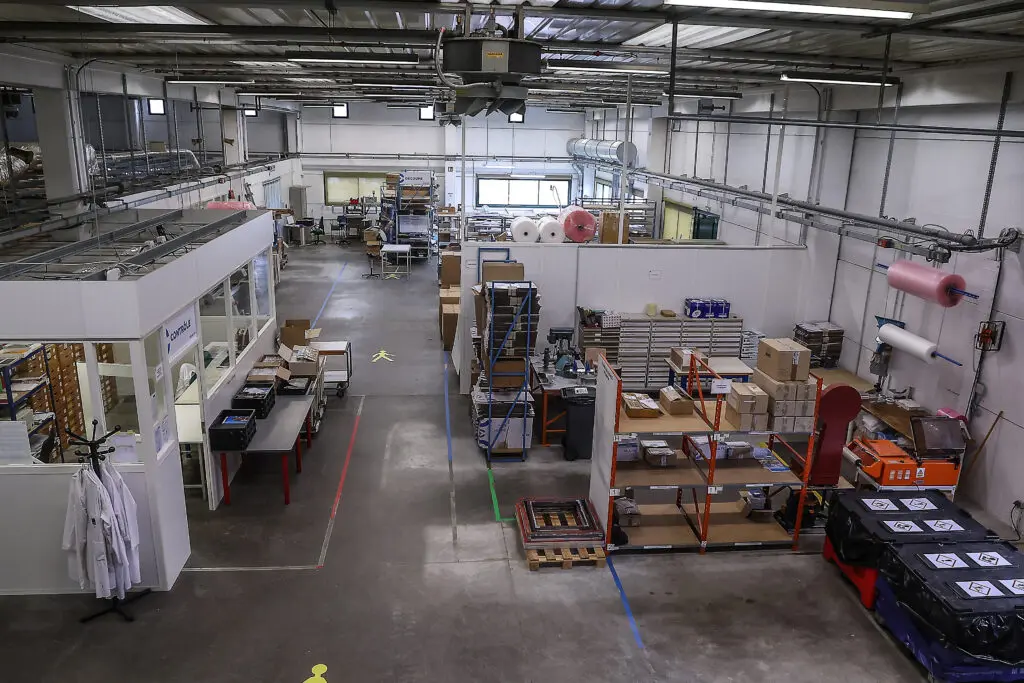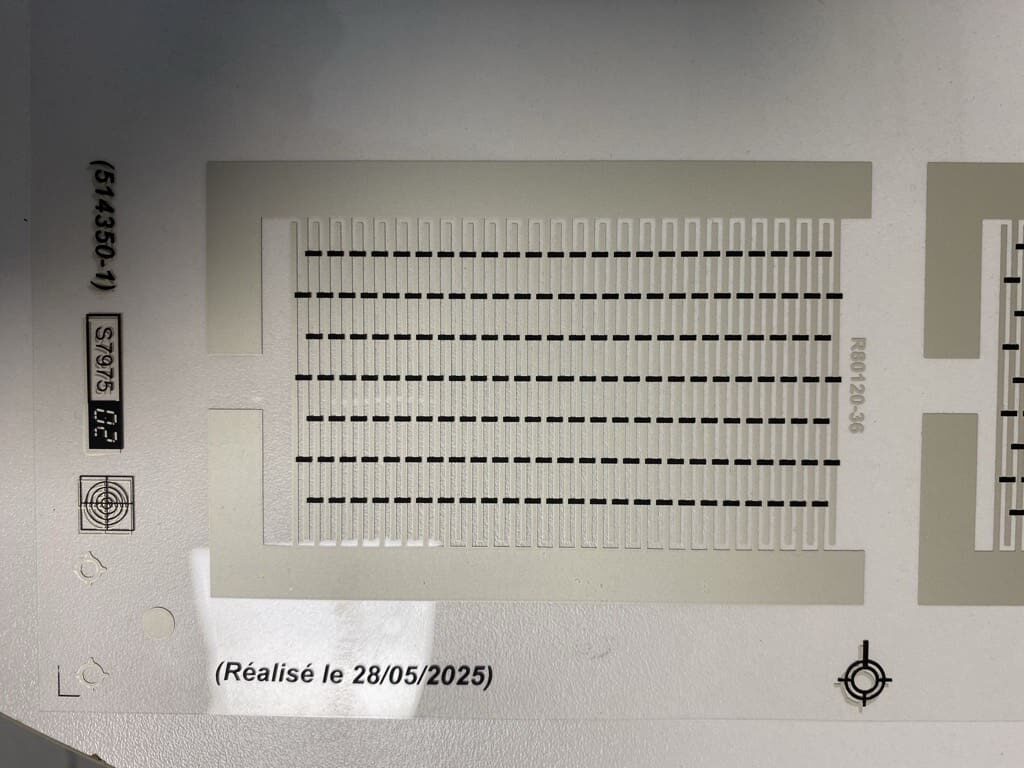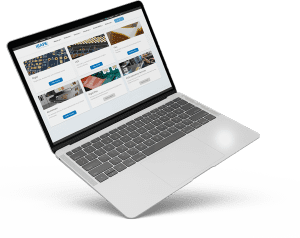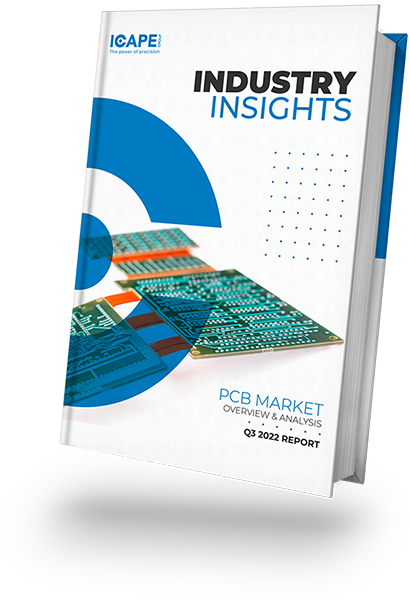Integrating a new type of conductive ink
Kevin Desmars : From the Lab to the Factory!
Kevin Desmars has always had one foot in fundamental research and the other in industry. With a PhD in materials chemistry, he is now a Field Application Engineer at CIPEM, the technical parts dedicated subsidiary of ICAPE Group, where he leads an ambitious project: integrating a new type of conductive ink capable of autonomously generating and regulating heat into the ICAPE Group’s product offering.
Driven by innovation
The electronics industry is packed with talent with diverse backgrounds. In this constantly evolving field, everyone plays a part in driving progress, accessibility, and performance in the electronic products that shape our daily lives. Kevin Desmars is one of those contributors. His specialty? Printed electronics.
If that term doesn’t ring a bell, know that you likely use it almost every day, through touch-sensitive control panels on household appliances or other human-machine interfaces. “I specialized early on in conductive inks and printed electronics. I completed a PhD in Materials Chemistry focusing on the physico-chemical interactions between inks, substrates, and the screen-printing process, along with a Master’s degree in LUMOMAT (Light, Molecule, Matter), which is dedicated to printed electronics,” he explains.
His academic journey was grounded in both laboratory work and hands-on experience in a private company. This dual scientific and industrial background now fuels his contributions to innovation.

After an initial role in R&D, he joined Fimor Electronics in September 2022, with the mission of expanding the company’s footprint within his geographical area in France. When Fimor Electronics was acquired by ICAPE Group in 2023, new opportunities emerged:
“With our integration into ICAPE Group, new prospects opened up. In 2025, I was entrusted with a high-potential technological development project.”
That project involves a printed heating element using a self-regulating heating ink, also known as PTC ink (Positive Temperature Coefficient): a material whose resistance increases with temperature until it stabilizes naturally. “The idea is to eliminate conventional electronics for temperature regulation, relying instead on the chemical properties of this new ink. This leads to cost, space, and complexity reductions on PCBs.”
Still in the development phase, this heating element shows promise across various industries, automotive, medical, construction, military, and even textile sectors. Envisioned applications range from heated mattresses for patients to wall-heating systems printed directly behind tiles.
“We’re developing an active component that will be integrated into a complete system: controlled by a PCB or PCBA, and embedded in a plastic or metal housing produced by CIPEM. That’s the spirit of ICAPE Group’s ‘Turn- Key Project’—a way to combine our know-how to streamline development and manufacturing for our clients. Our goal is to offer off-the-shelf solutions that allow clients to test the technology with minimal investment, proving its efficiency and supporting custom projects tailored to their specific needs.”

“We’re developing an active component that will be integrated into a complete system: controlled by a PCB or PCBA, and embedded in a plastic or metal housing produced by CIPEM. That’s the spirit of ICAPE Group’s ‘Turn- Key Project’—a way to combine our know-how to streamline development and manufacturing for our clients. Our goal is to offer off-the-shelf solutions that allow clients to test the technology with minimal investment, proving its efficiency and supporting custom projects tailored to their specific needs.”
The challenge is substantial: it’s essential to precisely understand how the ink behaves in the industrial processes of the IHM factory.
“There’s often a gap between theory and practice. Any variation can impact resistance and, consequently, the voltage required to reach the desired temperature. The margin for error is very slim—this demands true process mastery. ICAPE Group is committed to fully understanding this technology to apply it with maximum precision in both our technical and commercial offerings.”
The goal is to produce prototypes and demonstrators by September 2025, with the first customer projects
launching in early 2026.
“This project is a real-world trial. ICAPE’s desire to innovate is genuine—we’re investing for the long term, in equipment and in technology. It’s incredibly motivating to know that a large group like ICAPE trusts and relies on you to develop future-ready solutions that carry both economic and environmental potential.”
On a daily basis, Kevin Desmars splits his time between application engineering and commercial missions. He regularly collaborates with partner suppliers to fine-tune ink formulations and printing methods, and can help IHM customers with design support.
Behind the technical complexity of this project lies an engineer’s mindset: rigor, curiosity, and a commitment to evolving materials to better meet the demands of tomorrow.



